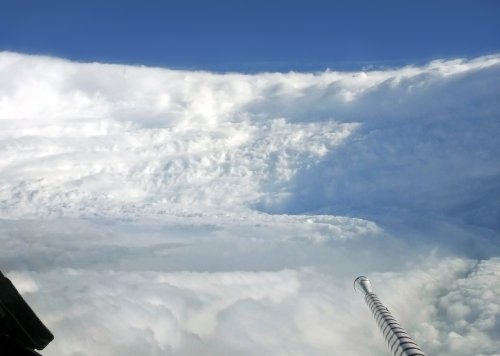
Hurricane Katrina, seen from the inside. It was the sixth-strongest Atlantic hurricane ever recorded, and the costliest in U.S. history. Total damages are expected to reach $75 billion.

Hurricane Katrina, seen from the inside. It was the sixth-strongest Atlantic hurricane ever recorded, and the costliest in U.S. history. Total damages are expected to reach $75 billion.

On Aug. 10, 2003, Russian cosmonaut Yuri Malenchenko became the first person to be married in space.
He was in the international space station, 240 miles over New Zealand, when he married Ekaterina Dmitrieva, who was in Texas.
In 2002, conceptual artist Jonathon Keats sponsored a petition to get Berkeley, Calif., to acknowledge Aristotle’s identity law, commonly expressed as A=A.
His law would impose a misdemeanor fine of up to one-tenth of a cent on anyone or anything caught being unidentical to itself within city limits.
Unfortunately, Keats gathered only 65 signatures and found no backers on the city council. Berkeley, apparently, prefers ambiguity.
When French psychologist Michel Gauquelin set out to determine whether astrology was valid, he found a curious anomaly.
His analysis showed that sports champions are more likely to be born when Mars is in the fourth quadrant. Examples include Babe Ruth, Muhammad Ali, Tiger Woods and Venus Williams.
It’s called “the Mars effect.”
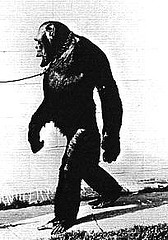
“Man is the noblest work of God!” roared Mark Twain. “Well now, who found that out?”
Consider the case of Oliver the chimpanzee. Oliver liked to stand upright instead of knucklewalking like his peers, and his keepers noticed that his face was flatter than other chimps’, who tended to avoid him.
That’s all the impetus they needed. Throughout the ’70s and ’80s Oliver was paraded through a succession of theme parks, zoos and promotions, billed as a missing link or even a “humanzee,” or human-chimp hybrid, and confined for seven years in a cage that measured only 7 by 5 feet.
It all came to nothing. In 1996, when Oliver was old, blind, and arthritic, University of Chicago geneticist David Ledbetter checked his chromosomes and discovered he was just an ordinary ape, albeit one who preferred to walk upright.
It’s still possible that Oliver belongs to a rare subspecies of chimps who resemble humans … but after that treatment, would he take that as a compliment?
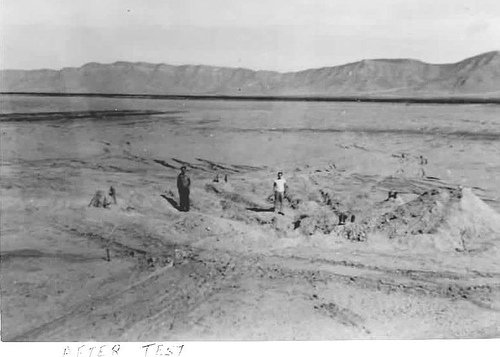
Ground zero after the first test of a nuclear weapon, July 16, 1945. Observers set up betting pools on the outcome, including these possibilities:
Physicist I.I. Rabi won — he predicted a blast equivalent to 18 kilotons of TNT.
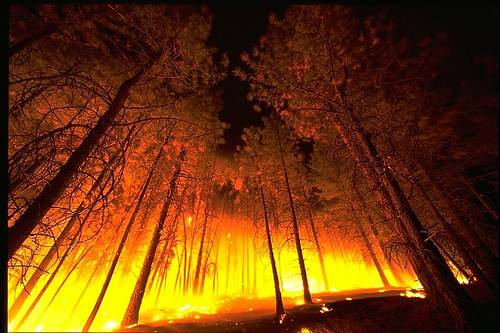
Flames conduct electricity. Forest fires near high-voltage transmission lines can actually discharge them to the ground.
When you kiss someone, you have to turn your head to one side to avoid mashing noses.
Psychologist Oner Güntürkün found that people favor turning to the right over the left by a 2:1 ratio.

If you’ve taken introductory psychology you know Rubin’s vase, which illustrates the principle of figure and ground: In the image on the left you can see two faces, or you can see a vase, but you can’t see both simultaneously.
A number of people have noticed the same thing in Canada’s modern flag, adopted in 1965 (below). Is this a symbol of Canada’s proud natural heritage or of two people bickering?
And what does that say about Canada?
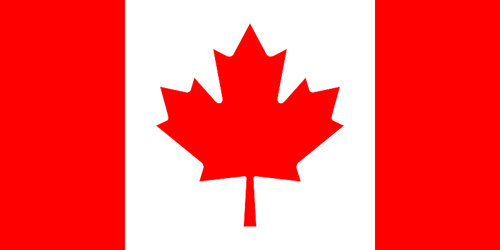
The average American has 1 chance in 3,000 of being struck by lightning during his lifetime.